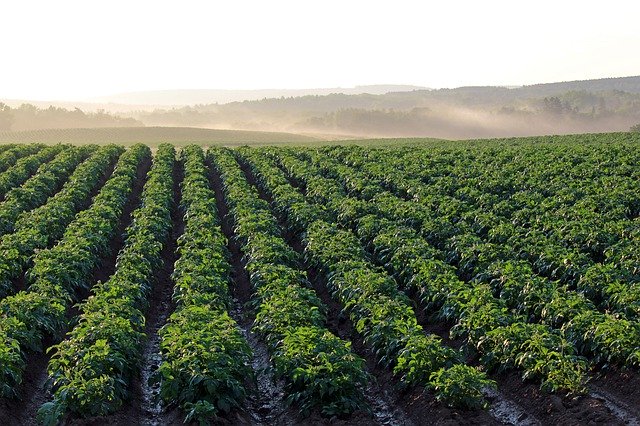Our potato industry has much to learn from the farmers it serves. To survive in potato production, growers constantly adapt and improve, try new things and innovate in order to be as efficient as possible with their resources. They also think long term — almost every farmer I speak to hopes they might in time pass their land onto a new generation. Farmers are doing a great job of pushing sustainability forward, but it’s up to the rest of the industry to follow their lead.
Most companies operate as just a single link in a value chain. Simplot, however, operates across the entire value chain — at one end, we supply crop inputs and agronomic advice to help farmers grow top-notch potatoes; at the other, we process those top-notch potatoes into customer-ready products. With so many touchpoints across the industry, we are uniquely positioned to tackle sustainability across the whole value chain. It’s a responsibility we take seriously.
Simplot has actively supported and promoted 4R Nutrient Stewardship since its beginning. Using the right source of fertilizer at the right rate at the right time and in the right place is a foundation for sustainable crop input management for producers.
We’re also committed to sustainability throughout our entire business. In October 2020, we unveiled what we call our 4Sight 2030 Sustainability Goals: specific, measurable targets designed to actively move us towards a more sustainable future. Our goals are to:
- Reduce our energy use by 15 per cent per ton of product
- Reduce our fresh-water intake by 15 per cent per ton of product
- Reduce our carbon emissions by 20 per cent per ton of product
- Produce zero waste to landfill for food processing plants
The targets are significant steps forward and will require ongoing and substantial effort to meet, as we share on our sustainability website. That’s exactly what we intended — after all, meaningful change requires real commitment.
While we’re proud to lead, we believe agricultural sustainability shouldn’t be about one region, one company or one type of grower. Instead, sustainability needs to be about real improvements made with an eye to the long-term good of the entire agriculture industry, and the land, air and water we all depend upon. To that end, on-farm sustainability efforts must remain collaborative, change-focused, and pre-competitive. Everyone from the smallest farm to the largest corporation has the chance to make a difference – and we hope our actions inspire others in the agriculture industry to also step up for our collective good.
At the same time, we believe partnerships and collaboration enable all of us to multiply our efforts across food and agriculture. That’s why we’re very pleased to remain an active member of the Potato Sustainability Alliance (PSA). When we and industry partners first envisioned and created, back in 2009, what was initially called the Potato Sustainability Initiative, sustainability wasn’t nearly the industry priority it is today. At the time, we felt a little like fish swimming upriver. Today, we’re pleased sustainability is far more mainstream, though much work remains. Our vision is PSA becomes the sustainability organization for the entire potato industry, in fresh, seed and processing stock.
For the good of all, join us in sustainable practices throughout potato crop production!
Related Articles
The Regenerative Ag Debate for Growing Potatoes, is it Possible?
Potato Sustainability Alliance Announces New Executive Director John Mesko
Canadian Ag Ministers Agree on Sustainable Agriculture Approach











